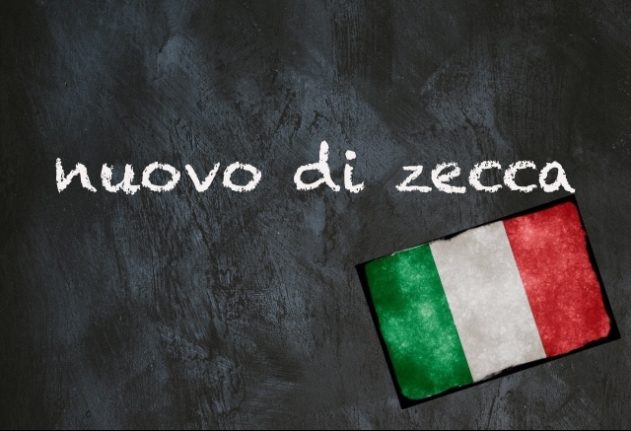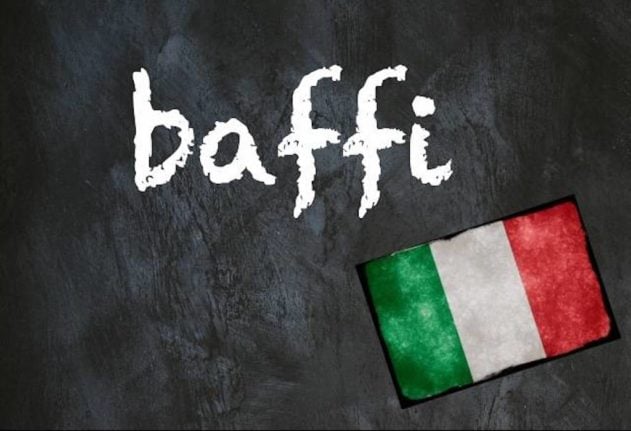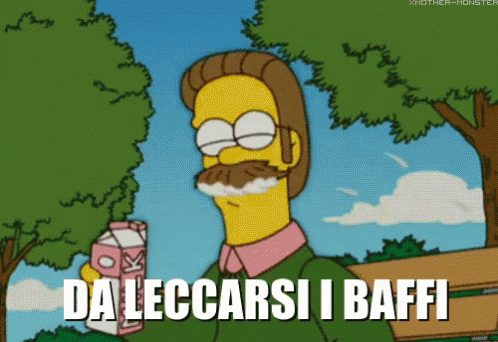Spend enough time on any Italian e-commerce platform or flea market and this is an idiom you’ll surely come across.
‘Nuovo di zecca’ is a very popular expression among Italians and it’s often used when someone is selling (or offering to sell) something to someone else.
While native speakers usually have no trouble understanding what is meant by it, non-native ones are likely to find the expression a bit of a head-scratcher. That’s because the word ‘zecca’ can be misleading.
Much like the word ‘riso’ (which means ‘rice’ but can also mean ‘laughter’), ‘zecca’ is one of those very few Italian words that have two different meanings. As the owners of furry pets might perhaps know, the term is most commonly used to refer to ticks, the very unfriendly, blood-sucking bugs pestering dogs and cats alike.
However, ‘zecca’ is also the Italian word for ‘State Mint’. In particular, the noun refers to the Zecca dello Stato, the state-controlled body that has been producing Italian coins, banknotes, passports and postage stamps since 1928.
It was precisely the latter meaning of the word that gave birth to the popular expression ‘nuovo di zecca’. Although the idiom can be rendered into English with adjectives such as ‘brand-new’ or ‘mint’, the most faithful literal translation would be ‘fresh from the mint’ (‘nuovo’ means ‘new, fresh’, whereas the preposition ‘di’ here is used to mean ‘from’ somewhere).
The expression, therefore, is used to refer to any item that – just like the coins coming out of the mint’s press – is in pristine, never-been-used-before condition. Here’s a couple of examples:
Q: Quanto costa quel paio di jeans?
A: 50 euro. Sono nuovi di zecca. Mai indossati prima.
Q: How much for that pair of jeans?
A: 50 euros. They’re brand-new. Never been worn before.
Q: Belli orecchini!
A: Grazie. Li ho comprati su Vinted per soli 20 euro. Sono nuovi di zecca!
Q: Nice earrings!
A: Thanks. I bought them on Vinted for just 20 euros. They’re in mint condition.
Now that you have an idea of what the expression means and how it is generally used, you’ll be able to navigate Italian e-shops with renewed confidence and business acumen.
However, keep in mind that the expression ‘nuovo di zecca’ is sometimes deliberately misused by sly sellers looking to pass off second-hand items as brand-new. So, always carefully check the items that you’re interested in and, if you feel like you’re being duped, here’s how you might reply:
Q: Questo anello è nuovo di zecca!
A: Ma figurati! Ha moltissimi graffi. Li riesco a vedere da qua.
Q: This ring is brand new!
A: Oh, please! It’s got lots of scratches. I can see them from here.
Is there an Italian word or expression you’d like us to feature? If so, please email us with your suggestion.
Don’t miss any of our Italian words and expressions of the day by downloading our new app (available on Apple and Android) and then selecting the Italian Word of the Day in your Notification options via the User button.




 Please whitelist us to continue reading.
Please whitelist us to continue reading.
Member comments